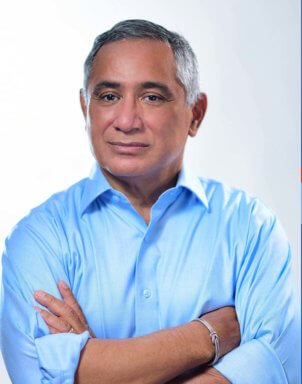CLEAR SIGNS OF REVIVAL

Caribbean Community leaders begin their week this Tuesday assembled in the flesh for their mid-term summit in Belize in the clearest sign yet that the region is speeding towards a return to normalcy.
The two-day summit, the first in person session since the COVID-19 shuttered economies two years ago this month, is expected to be dominated by discussions centered around pandemic recovery issues, Haiti’s perennially crisis-ridden state and climate change among others. Prime Minister John Brecino will chair his first CARICOM summit since winning general elections by a landslide in November 2020. Regional officials say that most of the heads of governments and state are down to attend the session as many of the member nations struggle to economically recover from two years of withering restrictions.
“Naturally the discussions will center around the COVID-19 situation, the situation in Haiti and climate change. The recovery from COVID is paramount in everybody’s mind, the economic and social recovery that is,” said CARICOM spokesman, Leonard Robertson.
Once the session involving the 15 bloc member nations concludes, presidents and prime ministers will meet with their Central American counterparts on March 3rd for a day of talks regarding multilateral cooperation, including exchanging notes on strategies to recover from two tough years. CARICOM and the Central American Integration System (SICA) have not met in recent years. United Nations Secretary General Antonio Guterres will attend that conference. Despite being in Central America, Belize’s British colonial past ensures it is both in CARICOM and in SICA. The travel, tourism and entertainment sectors were among the worst affected globally once the World Health Organization had declared the coronavirus a world pandemic back in early 2020.
Governments across the world shuttered airports, cruise and other commercial ships headed to berthing ports, airports closed and streets emptied as authorities struggled to cope with alarming infection rates, rising fatality levels and vastly reduced revenues streams.
The shutdown permanently closed some hotels and entertainment spots across the region, forced others to let go of thousands of workers-some of whom have not returned to stations-and pushed others into offering early retirement packages to eligible staff.
And while key revenue streams dried up or reduced to a trickle, governments were still forced to find millions in grant aid schemes to help people in affected sectors to cope with temporary unemployment while still being under pressure to fund Covid test kits, acquire expensive vaccines and other medical supplies.
The in person summit comes as governments across the bloc are relaxing some of the stringent pandemic protocol rules which have been in place in the past two years.
The Gleaner Newspaper, for example, reported this week that local hoteliers are praising the Andrew Holness administration for abandoning travel restrictions to Jamaica including mandatory quarantine periods and negative PCR tests certificates. The new arrangements are effective from March 1. They anticipate a mega uptick in arrivals to the tourism paradise.
“Removal of these restrictions is a step in the right direction, especially for business travelers who can now come into the island to do business for as long as it takes, without fear of testing out of quarantine. Returning residents will also be happy that they will not have to incur additional costs of PCR testing, so this will be encouraging news for them too,” noted Clifton Reader, head of the tourism and hospitality association.
Suriname, Barbados, Guyana, The Bahamas and other member nations have either abandoned night time curfews altogether or have allowed social activities up to midnight in gradual moves to restore some semblance of normalcy.
Just this week, schools in Barbados moved to a phased reopening, while some like Guyana and the Eastern Caribbean have already done so. Officials including Education Minister, Kay McConney in Barbados say the time has come for a resumption even as daily infection rates continue to worry officials.
Some of the key agenda items include the situation in Haiti as the region’s most populous country tries to recover from the early July assassination of President Jovenel Moise, the pandemic and its extremely low vaccine availability and inoculation rates, an earthquake that killed hundreds in August and a hit by a storm during last year’s season.
This is in addition to continuing squabbles as to who should lead the country, when to have elections and the growing strength of armed gangs as was seen in the bold abduction of more than 20 Americans last year and ransom demands for their release.




